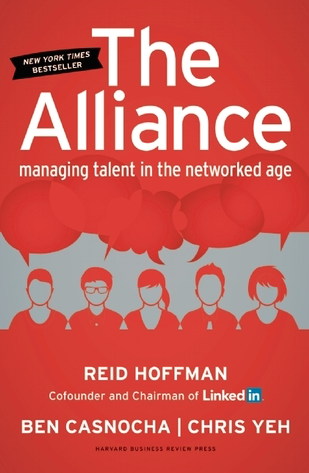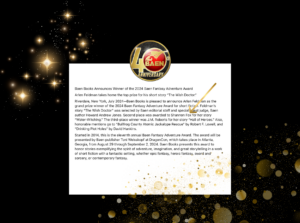by Reid Hoffman, Ben Casnocha, Chris Yeh
The employer-employee relationship is broken, and managers face a seemingly impossible dilemma: the old model of guaranteed long-term employment no longer works in a business environment defined by continuous change, but neither does a system in which every employee acts like a free agent.
The solution? Stop thinking of employees as either family or as free agents. Think of them instead as allies.
Coauthored by the founder of LinkedIn, this bold but practical guide for managers and executives will give you the tools you need to recruit, manage, and retain the kind of employees who will make your company thrive in today’s world of constant innovation and fast-paced change.
I saw this book on a list of business books a few weeks back and I was very excited to read it.
This book posits that the old model of staying with a company for life is a thing of the past. Employees often move from company to company. So how can you instill loyalty in an employee when you know they are eventually going to leave.
While this book was geared more to a corporate level, smaller businesses can benefit from some of the wisdom in this book.
At the core of The Alliance is this idea of “tours of duty”. As in the military, soldiers are sent out on tours of duty with the idea of completing a specific mission. So it can be with employees.
In The Alliance they discuss three different tours of duty: Rotational, Transformational, and Foundational.
In the rotational tour of duty, the employee fills one or more highly defined roles. I likened this to your typical “sales team” approach where the employees job is call up potential clients and get them to sign up for the product. Easily trained, highly defined, and a sort of clearinghouse where exceptional employees could be identified and moved into transformational or foundational tours of duty.
In the transformational tour of duty, an employee is hired to transform a company in some way be it solving a problem or launching a new product. In exchange for their dedication, the company helps to increase their skills and their network, therefore increasing their marketability.
The foundational tour of duty is for those employees who will be lifers at a company. These employees will go on to achieve high ranking positions within the company. Even, perhaps, CEO.
The final piece of this book concerns the “alumni network”. The alumni network only really starts to work when the number of company alumni exceed its current number of employees. Like college alumni networks, the corporate alumni network serves to fulfill all those typical networking opportunities: staying in touch, job offers, mining the hivemind for innovation.
While the alumni network is outlined in a practical sort of way, it truly is the core of the book. If you’ve done your job building alliances with employees while they worked for your company and they exited on mutually good terms, then those alumni employees will continue to be advocates of your brand your years to come.




